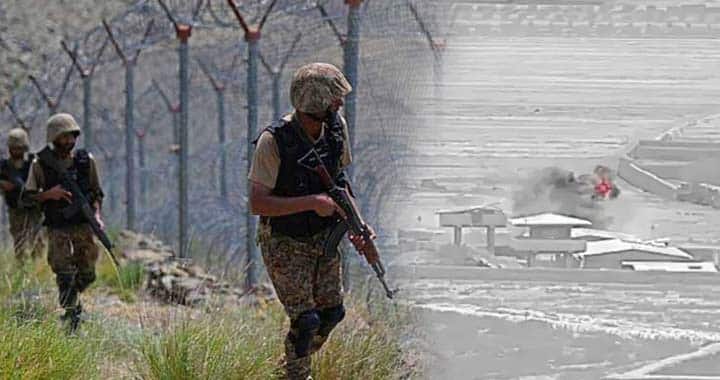Fresh clashes between Pakistan and Afghanistan have plunged bilateral relations to a new low, as Pakistan’s decisive military response to cross-border aggression has not only repelled multiple attacks but also reasserted its control along key border sectors. The confrontation began three days ago after reports emerged of alleged Pakistani air operations near Kabul, which Afghan officials claimed targeted Tehreek-e-Taliban Pakistan (TTP) chief Mufti Noor Wali Mehsud. While Kabul accused Islamabad of airspace violation, Pakistan maintained that the strikes were intelligence-based operations directed against militant groups orchestrating terrorist attacks inside Pakistan from Afghan soil.
According to official and security sources, Afghan forces, aided by TTP and other Fitna al-Khawarij factions, launched simultaneous assaults on several points along the Durand Line in an attempt to facilitate militant infiltration. Pakistan responded with precision strikes, capturing 19 Afghan military posts, destroying key militant hideouts, and inflicting heavy losses on Taliban and foreign fighters. Security officials described the operation as “measured yet resolute,” underscoring that Pakistan’s actions were aimed solely at neutralizing terrorist threats emanating from across the border.
At a press conference in Peshawar, Director General Inter-Services Public Relations (ISPR) Lieutenant General Ahmed Sharif Chaudhry said Pakistan would continue to take every necessary measure to safeguard its people and territory. “The protection of Pakistani citizens is paramount,” he affirmed, adding that the armed forces remain fully prepared to counter any aggression.
In contrast, Afghanistan’s Ministry of Defense alleged that Pakistan bombed a refugee camp in Paktika’s Barmal district, a claim Islamabad rejected as baseless, reiterating that its operations were confined to militant zones identified through verified intelligence. The Foreign Office emphasized that Pakistan’s actions were part of its continued counterterrorism efforts against groups using Afghan territory as a launching pad for attacks inside Pakistan.
Though Afghan authorities announced late last night that they had halted their operations, Pakistani counterstrikes reportedly continued into the morning, targeting several terrorist strongholds and eliminating key commanders. The Pakistani side reported “substantial damage” to militant infrastructure and significant enemy casualties.
This is not the first instance of cross-border tension between the two countries. In April 2022, Afghanistan levelled similar accusations against Pakistan following airstrikes in Kunar and Khost. Islamabad, while avoiding confirmation or denial, has consistently maintained that the real issue lies in the Afghan Taliban’s reluctance to curb the banned TTP’s presence and activities on its soil.
Diplomatic observers note that Pakistan’s firm military response in the latest clashes underscores a strategic shift in its regional counterterrorism posture signalling zero tolerance toward cross-border militancy and external provocations. Analysts warn that continued Afghan inaction against TTP sanctuaries could further strain relations, but for now, Pakistan’s show of force appears to have restored deterrence along the volatile frontier.





